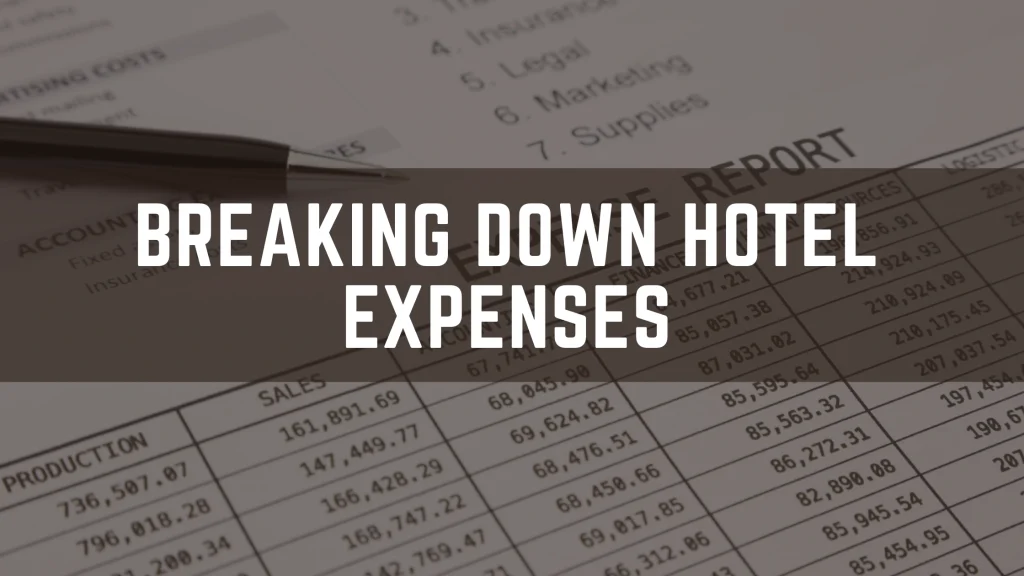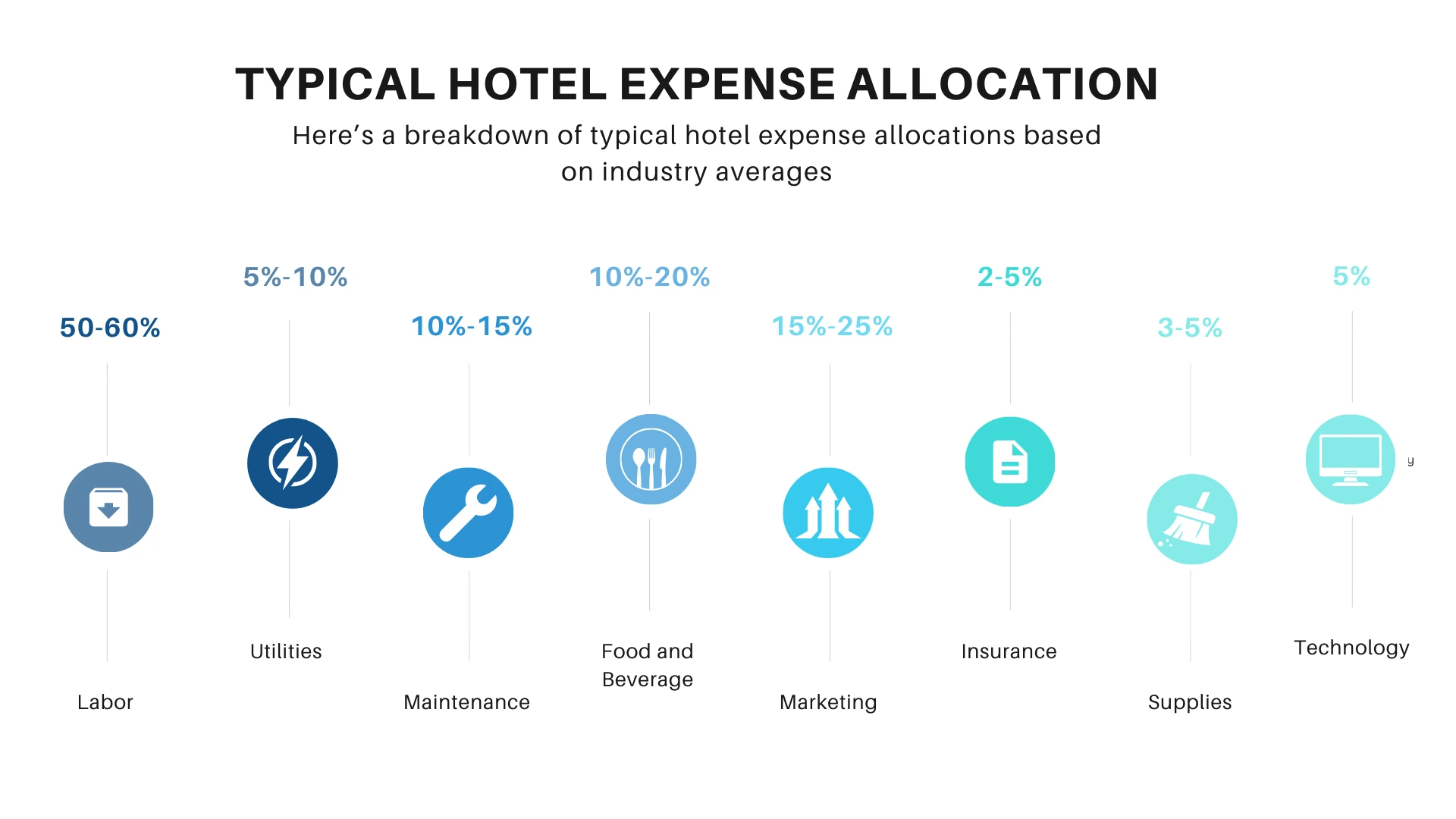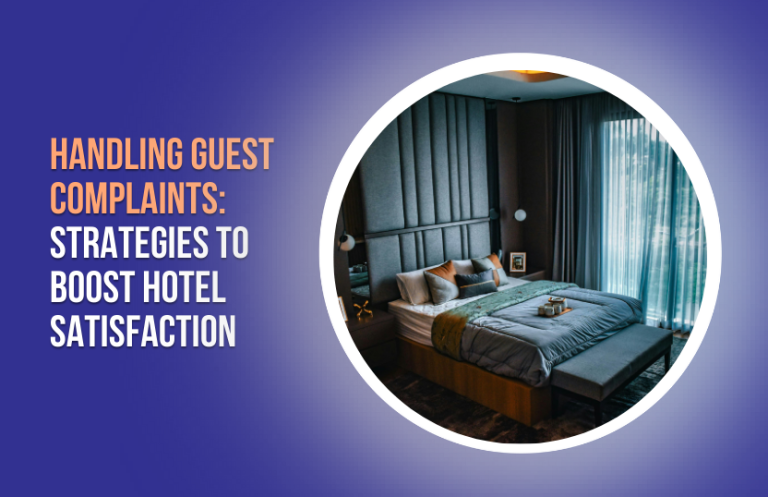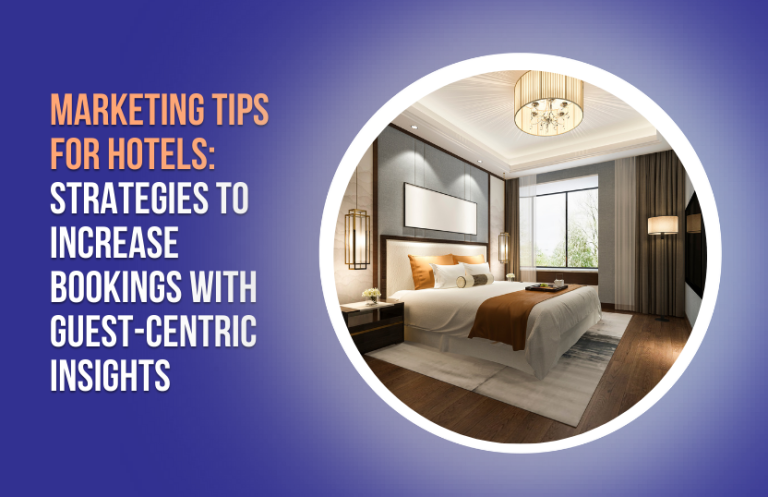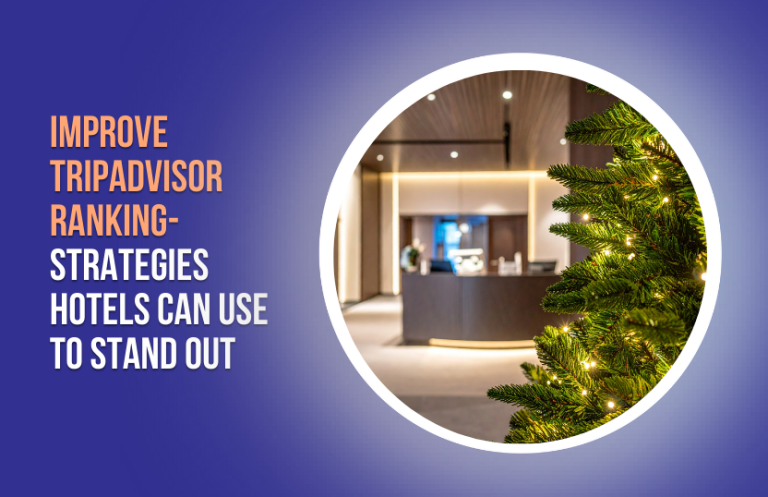Running a hotel comes with various expenses that can significantly impact your profitability. Managing these expenses efficiently ensures you maintain a healthy bottom line while continuing to deliver excellent guest experiences. Understanding where your money goes is the first step in creating an effective expense management strategy.
In this guide, we’ll break down hotel expenses into major costs and other costs, explore their typical allocations, and share actionable tips to optimize them.
Breaking Down Hotel Expenses
Major Costs
Major costs are the primary expenses that keep your hotel operational. These include labor, utilities, and property maintenance. These categories often account for the bulk of a hotel’s budget.
Labor Costs
Labor is typically the largest expense for hotels, accounting for 50%-60% of total operating costs, according to industry statistics. This includes wages, benefits, and training for all staff, from housekeeping to front desk personnel.
Optimization Tips:
- Use workforce management software to schedule staff based on occupancy trends.
- Cross-train employees to handle multiple roles, reducing the need for overstaffing.
- Offer seasonal contracts during peak times to control costs during slower periods.
Utilities
Utilities like electricity, water, and gas account for 5%-10% of a hotel’s total expenses. Energy efficiency is crucial to keeping these costs manageable.
Energy-Saving Tips:
- Install LED lighting and energy-efficient appliances.
- Use smart thermostats to regulate heating and cooling in unoccupied rooms.
- Encourage guests to participate in eco-friendly programs, like towel and linen reuse.
- Property Maintenance and Repairs
Regular maintenance ensures your property remains attractive and functional. This expense typically represents 10%-15% of the budget and includes everything from landscaping to HVAC servicing.
Maintenance Tips:
- Conduct preventive maintenance to avoid costly emergency repairs.
- Partner with reliable contractors for long-term service agreements.
- Use predictive tools to identify issues before they escalate.
- Food and Beverage Costs
If your hotel offers dining services, food and beverage costs can account for 10%-20% of your expenses. Managing inventory and reducing waste are key to controlling these costs.
Cost-Reduction Tips:
- Offer seasonal menus with locally sourced ingredients.
- Use portion control to minimize overuse.
- Implement inventory management systems to track usage and avoid spoilage.
Other Costs
Other costs are essential but secondary expenses. They support the guest experience and overall hotel operations.
Marketing and Distribution
Marketing and distribution expenses, including commissions paid to Online Travel Agencies (OTAs), account for 15%-25% of revenue. These costs are critical for attracting guests but can be reduced with the right strategies.
Optimization Tips:
- Focus on direct bookings through your website to lower OTA commissions.
- Use targeted digital advertising to reach specific audiences.
- Highlight positive guest reviews to build trust and attract bookings.
Insurance and Licenses
Hotels allocate 2%-5% of their budget to insurance and licenses. This includes coverage for liability, property, and workers’ compensation.
Cost-Reduction Tips:
- Compare policies annually to ensure competitive rates.
- Bundle insurance coverage to secure discounts.
- Maintain a good claims history to reduce premiums.
Housekeeping Supplies
Housekeeping supplies typically represent 3%-5% of expenses, covering cleaning products, linens, and toiletries.
Savings Tips:
- Buy in bulk to benefit from volume discounts.
- Switch to eco-friendly products, which often last longer and reduce waste.
- Track inventory to avoid overstocking.
Technology Investments
Technology costs are an increasingly important part of hotel budgets, accounting for 2%-4%. These include property management systems (PMS), guest apps, and automated booking systems.
Efficiency Tips:
- Choose scalable systems that can grow with your needs.
- Integrate platforms to reduce redundancy and improve workflows.
- Use data from technology to identify trends and optimize expenses.
Typical Hotel Expense Allocation
Here’s a breakdown of typical hotel expense allocations based on industry averages:
Understanding these allocations can help you identify areas for improvement and prioritize cost-saving strategies.
Benefits of Managing Hotel Expenses Efficiently
Efficient expense management has far-reaching benefits that go beyond saving money. Here’s what you can achieve:
- Increased Profit Margins: Reduced costs lead directly to higher profitability.
- Improved Guest Satisfaction: Reinvest savings into amenities or services that enhance the guest experience.
- Competitive Advantage: Lower costs allow for competitive pricing without sacrificing quality.
- Sustainability: Energy-efficient practices reduce costs and appeal to eco-conscious travelers.
How The Reputation Lab Can Help
Your hotel’s reputation directly impacts your bottom line. A strong reputation attracts more bookings, reduces dependency on OTAs, and increases direct revenue. The Reputation Lab specializes in helping hotels manage and enhance their online presence, ensuring a stellar reputation that drives business.
Services Include:
- Monitoring and managing guest reviews across platforms.
- Crafting thoughtful, professional responses to guest feedback.
- Highlighting positive reviews to attract direct bookings.
- Providing actionable insights to improve guest satisfaction and operational efficiency.
By partnering with The Reputation Lab, you can focus on optimizing expenses while we ensure your reputation remains top-notch.
Elevate Your Hotel Business with The Reputation Lab
Ready to take your hotel business to the next level? The Reputation Lab is here to help. Our comprehensive reputation management services ensure your hotel shines online, attracts more bookings, and leaves guests raving about their experience. If you are interested in learning how a reputation management strategy can benefit your business, we invite you to email us via our secure contact form to set up a no-pressure consultation or call us at 855-979-6800.

